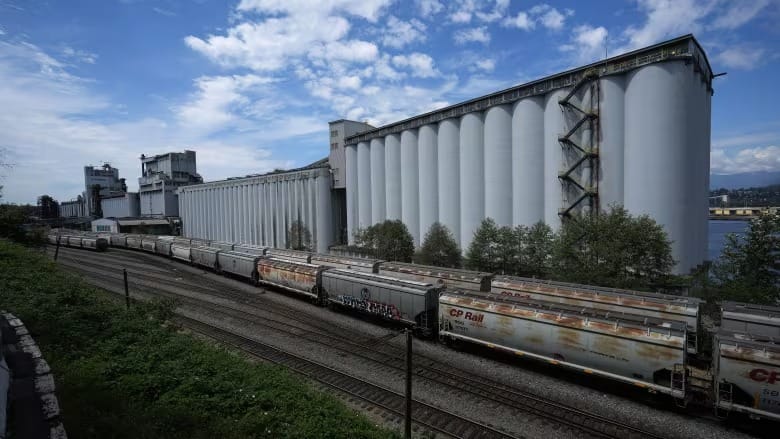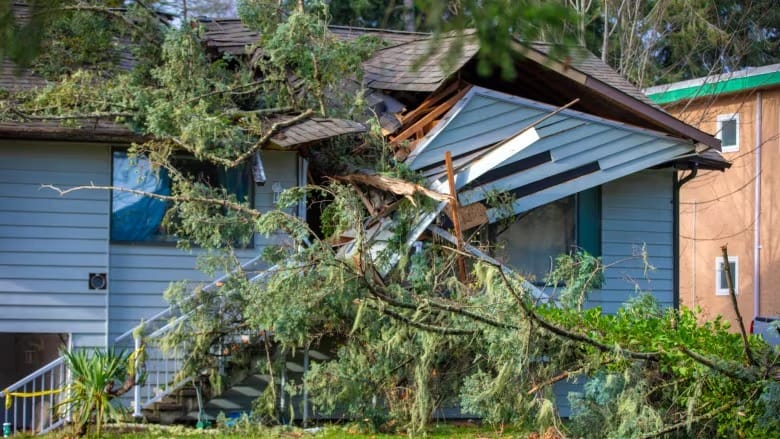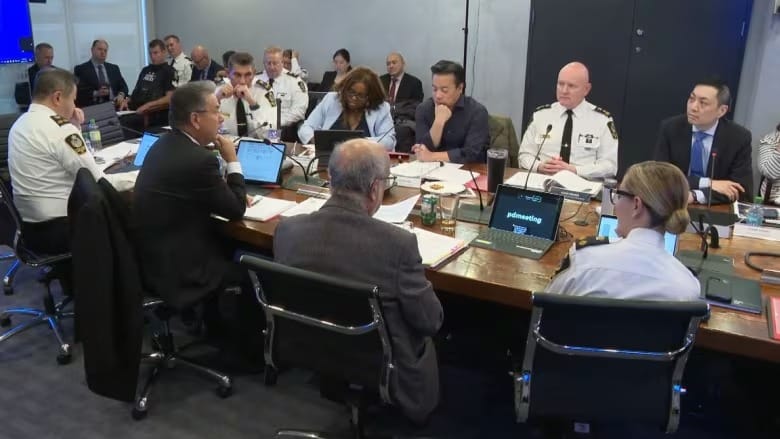Metro Vancouver grain terminal workers begin strike
Grain Growers of Canada warns 'devastating' work action will cost about $35M daily in lost exports

Workers at multiple grain terminals in Metro Vancouver initiated a strike on Tuesday morning.
Members of the Grain Workers Union Local 333 began picketing at 7 a.m. PT, three days after issuing a strike notice, in what an industry group has described as potentially "devastating" job action.
Both the union and the Vancouver Terminal Elevators Association (VTEA), the employer, have reported that they failed to reach an agreement on a new contract.
The affected terminals, located in Vancouver and North Vancouver, include Viterra's Cascadia and Pacific Terminals, Richardson International Terminal, Cargill Limited Terminal, G3 Terminal Vancouver, and Alliance Grain Terminal, as identified by the VTEA.
An industry group representing Canadian grain growers noted that over half of all Canadian-grown grain moved through these terminals last year, and the strike will disrupt the arrival of 100,000 tonnes of commodities each day.
In a statement issued on Monday, the Grain Growers of Canada warned that the "devastating" work stoppage would result in approximately $35 million in daily export losses. The group urged Labour Minister Steven MacKinnon to intervene and prevent the strike.
MacKinnon confirmed that he spoke with both parties on Monday and that the union and employer agreed to reconvene with federal mediators. "Canadian farmers and businesses need to get their harvest to market," MacKinnon stated. "Parties need to work hard to get a deal."
The union and employer are scheduled to negotiate again on Wednesday.
Douglas Lea-Smith, president of Grain Workers Union Local 333, acknowledged the economic ramifications of the strike. "We take it with heavy hearts to go on strike, but it's the leverage provided to us to get the employer to come to the table to bargain seriously," he said. "They are the ones hurting the farmers, not us."
Lea-Smith highlighted that the employer has yet to address key issues, including workers' rights to paid lieu days. "The employer has dragged their feet," he stated. "They are not serious about bargaining."
In response, Wade Sobkowich, executive director of the Western Grain Elevator Association, contested Lea-Smith's claim, stating it "could not be farther from the truth."
Sobkowich explained that negotiations have been challenging for the VTEA, which is part of the Western Grain Elevator Association, since they began last November. "The VTEA has been trying to get a deal done as soon as possible, because we're trying to resolve this before we get into this year's harvest," he said.
He noted that the union and the VTEA entered federal mediation in August, which did not lead to a resolution. Sobkowich emphasized the urgency of reaching an agreement due to the upcoming fall harvest and potential trade actions from China that could hinder Canadian canola shipments. "We sure need a solution under a short timeline here," he remarked. "We're very motivated to get this resolved."
Lea-Smith stated that it is the employer's responsibility to present a proposal for a new contract, adding that the union sent the VTEA a contract offer last Thursday, which the employer reportedly declined to respond to.
Workers plan to maintain picket lines outside the terminals around-the-clock until the VTEA initiates contact with the union. Lea-Smith also mentioned that the employer has hired foremen to keep the terminals operational during the strike.
The Vancouver Fraser Port Authority expressed concern regarding labor disruptions impacting operations. It has advised ships en route to Vancouver to adjust their arrival times to avoid congestion at the ports and is prioritizing anchorage for vessels heading to terminals not affected by the strike.
"In the best interests of all Canadians, these matters need to be resolved immediately — and we urge all parties involved to come together and reach an agreement," the port authority stated.





